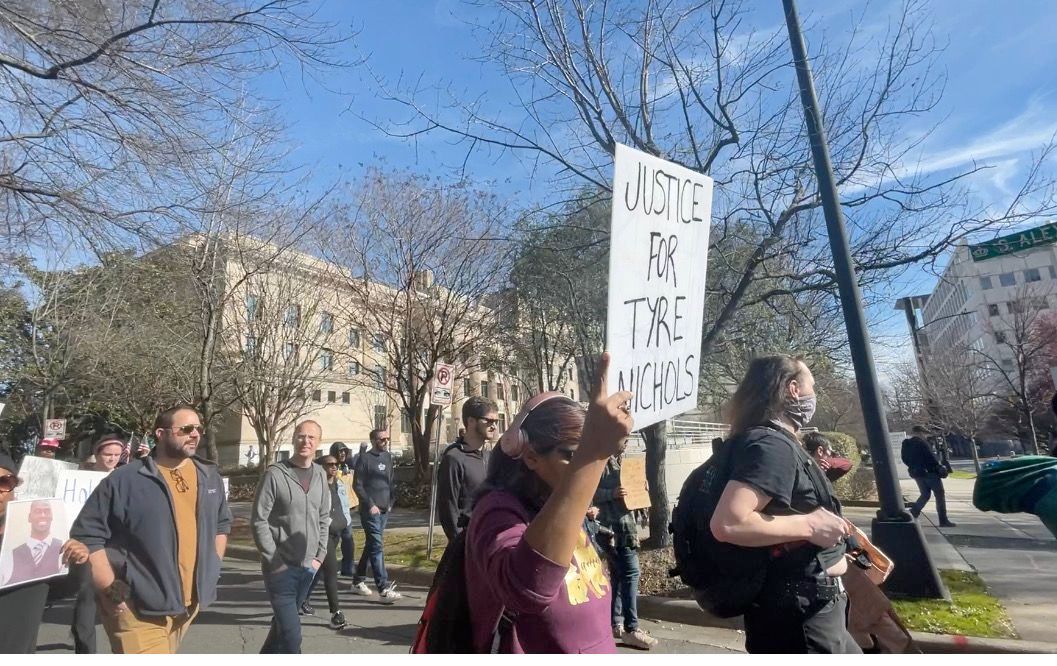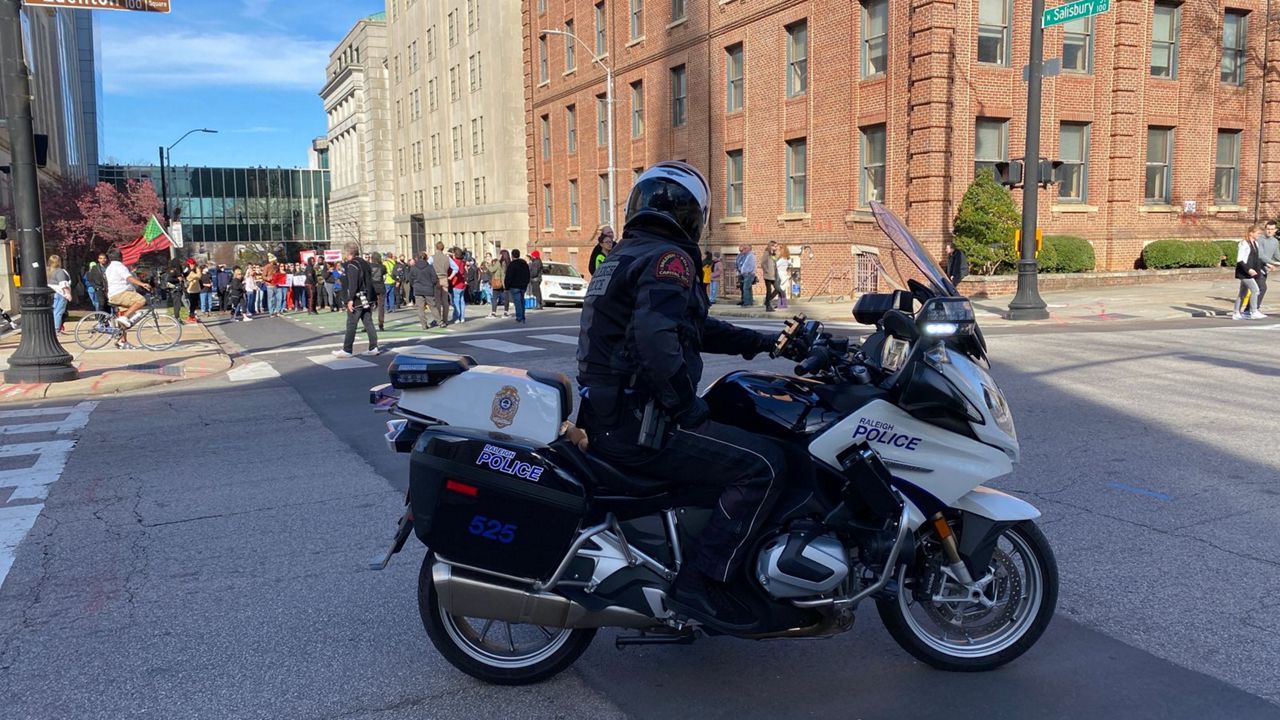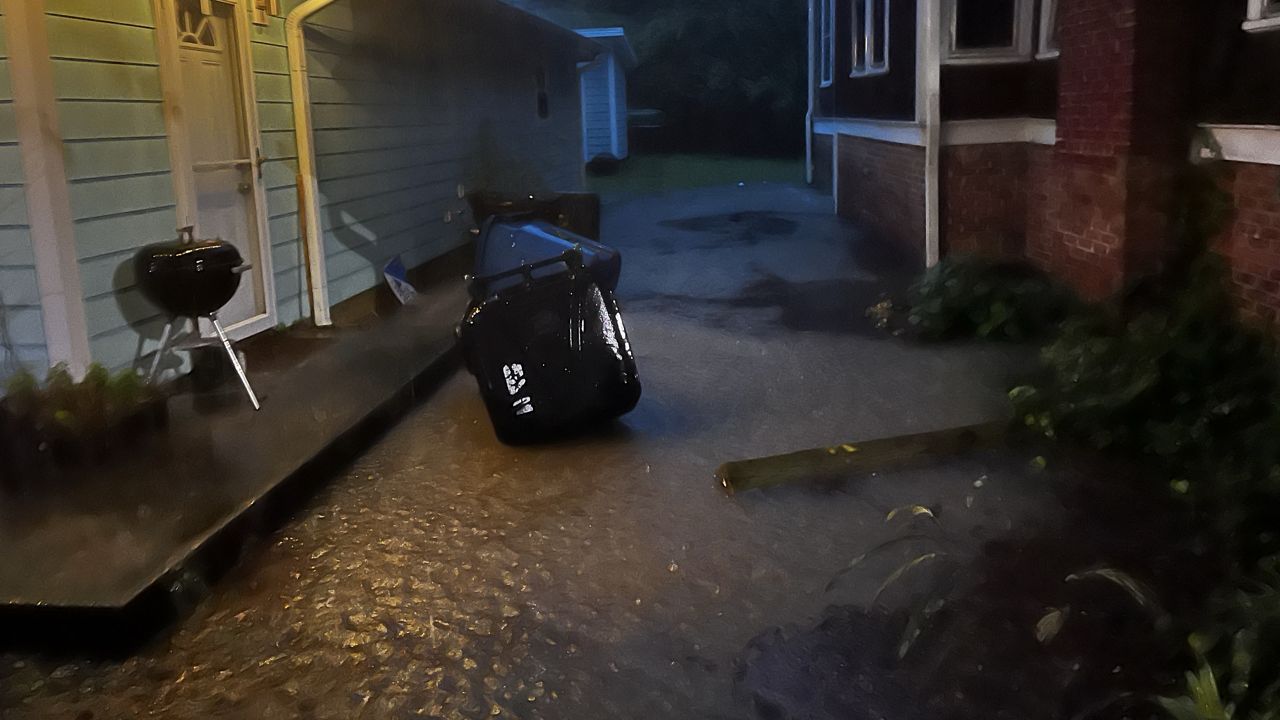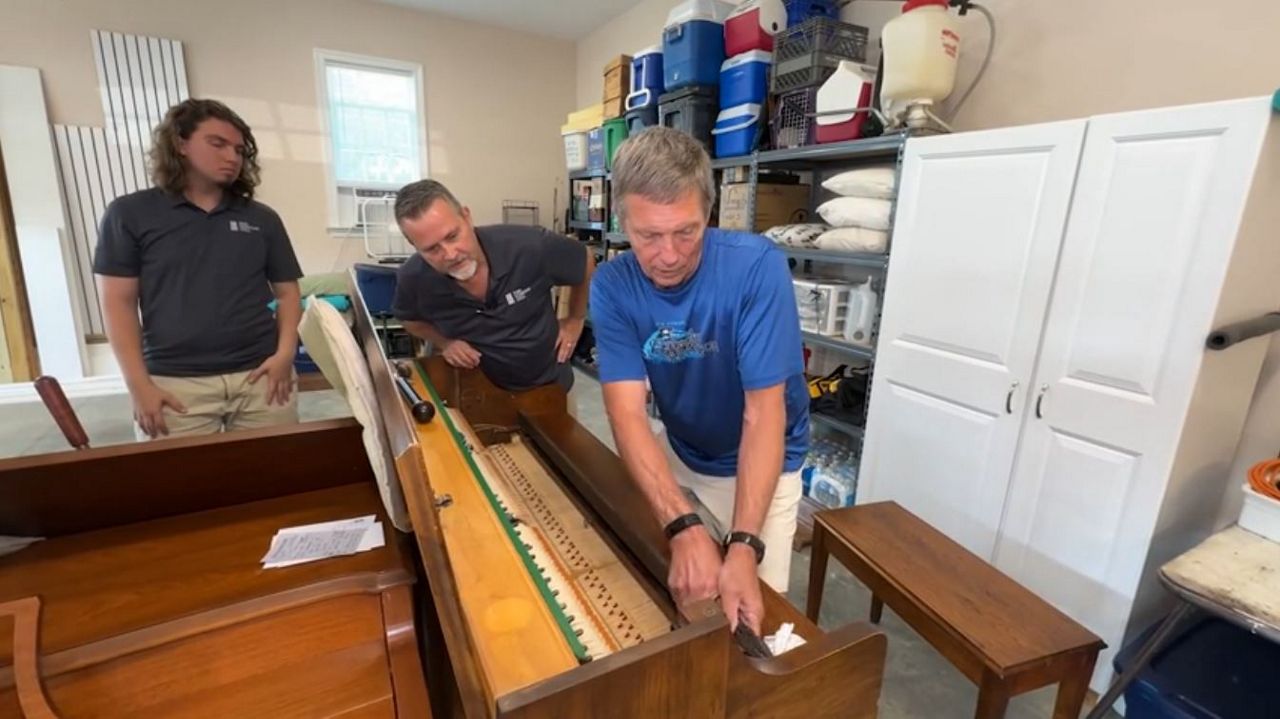On Wednesday, a suspected car thief ran from police in Davidson County, North Carolina, near Lexington, according to the Davidson County Sheriff’s Office. “An altercation ensued” as the deputy tried to arrest the person, and the deputy shot the suspect, the sheriff’s office said.
The suspect and the deputy were taken to a hospital where both are expected to recover, the sheriff's office said in a news release. Deputies made no mention of the suspect having a weapon.
On Thursday, police in Rocky Mount shot a man behind a shopping center as they were investigating a stolen vehicle, officials say.
On Jan. 2, Harnett County deputies were responding to a mental health call when the subject pointed a gun at them, according to the sheriff’s office. The deputies shot and killed the person.
There have been six shootings by police and deputies in North Carolina in the first 40 days of 2023, according to the State Bureau of Investigation. At least one of those was fatal.
The debate over police use or force, lethal and otherwise, is at the top of many people’s minds after the beating death of Tyre Nichols by police in Memphis. In Raleigh, police are accused of using a Taser on Darryl Williams three times as he tried to run from officers. He died after the arrest.

Nationally, there are no clear standards for how and when police should use force, said Angela Weis Gammell, with the Wilson Center for Science and Justice at Duke University. But there are models out there.
The George Floyd Justice and Policing Act, a police reform bill that passed the U.S. House but stalled out in the Senate, proposed that use of force be used only when necessary to prevent death or injury.
Gammell said the police reform bill gives “a really great standard to analyze a lot of these cases through.”
“If you analyze the incident in Raleigh through that frame, I think it becomes very clear that use of force was not justified, particularly as he’s running across the parking lot,” she said, referring to the Williams case. “I don’t think you can say he presented any harm running away.”
Gammell joined two professors from Duke University’s law school, former federal public defender Elana Fogel and Brandon Garrett, author of “Changing the Law to Change Policing: First Steps.”
Talking to reporters this week, they said there needs to be changes to laws around policing and in the culture of the police department themselves.
“A change in culture is what many reform activists and advocates call for, in addition to the legislative and legal changes -- what policies are not only enacted, but whether they're enforced. What leadership in departments emphasizes. What’s celebrated, it’s not just what's punished,” Fogel said.
There are practical changes state and federal lawmakers can enact to make policing safer, Gammell said.
“A number of departments have also adopted bans on certain categories of force. So you can't use chokeholds, or bans on shooting at vehicles, which has a high incidence of hurting innocent bystanders and not actually resulting in any effective policing activity,” Gammell said.
“Putting a ban on using deadly force on individuals who only present a risk of harm to themselves is another ban that has gained some traction,” she said.
Some cities have created citizen review boards to oversee police, including Charlotte, Winston-Salem and Durham.
Congress and a number of state legislatures have debated bills to reform policing, Garrett said, but the results have been mixed.
“We have seen a flood of legislative activity, especially since the killing of George Floyd,” he said. “But not very many of these laws were passed – like, less than 10 percent.”
“Many of the laws addressed sort of useful but not particularly hard-hitting subjects, like more resources for training, which is good, but not actually changing the rules for when police are allowed to use force -- very few states have done that,”Garrett said.“Many of the laws addressed sort of useful but not particularly hard-hitting subjects, like more resources for training, which is good, but not actually changing the rules for when police are allowed to use force -- very few states have done that,”Garrett said.
In 2021, North Carolina passed a trio of police reform laws. Those laws require police officers to intervene and report excessive use of force by other officers.
They also require departments to check a national database of decertified officers before they are certified to work with a North Carolina police department or sheriff’s office.
The laws require mental health screening for new police officers, promote diverse hiring by departments, and “requires early intervention mechanisms to identify and correct officers who use excessive force or other misconduct,” according to the governor’s office.
Nationally, Garrett said, efforts to reform policing have slowed.
“Even in the third year since Floyd's murder, we've seen a real decline and willingness to actually do lawmaking around policing, and sort of a false narrative that this is sort of abolitionist, or you're just against police if you're trying to regulate police. And that's not right, this is about supporting police and making sure that policing is professional,” he said.









